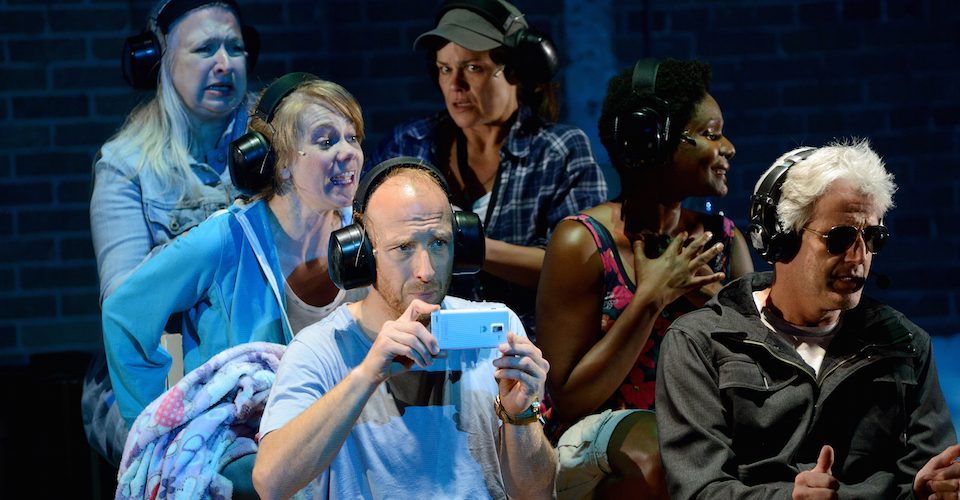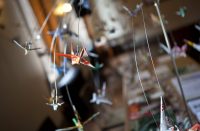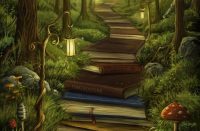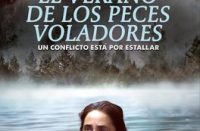The Watershed is a documentary verbatim play, created through a research and community building process. The play focuses on writer Annabel Soutar’s research into the federal government’s 2012–2014 closing of the Experimental Lakes Area (ELA). The ELA is a scientific ecosystem research facility in Ontario that was transferred to a private organization, the International Institute for Sustainable Development, in 2014.
Soutar traveled across Canada investigating water as a focus of family, social, science, economic and natural encounters. The play and the associated lower Don River watershed walks, sound art installation and speakers panel ask us to revisit water, its protection and restoration.
RELATED: Read our preview interview with the creators of The Watershed
Soutar enters into the actions of those working to maintain ELA’s vital research into the effects of industry on watersheds. She asks where economies impact our lives and what we can do about it. Director Chris Abraham’s production reveals Soutar’s research journey through an accessible and distinctively acted collage of action and setting. We don’t see factions, but rather changeable social actions and the water running through it all. The actors play multiple characters in quick vignettes in over a dozen locales using exaggerated spoken and physical actions. They visibly switch gender and age, and act in simultaneous different geographic pockets across the stage.
The audience encounters a representative range of Canadians’ relationships to our watersheds: disaster, a hysterical broadcaster warns of Hurricane Sandy; ELA student and water advocate Diane Orihel speaks for scientists barred from doing so; a multigenerational family discusses the oil economy; conferences with water scientists; an icy lake and ELA research structures; the House of Commons debates the budget bill cutting funding to the ELA; and a Winnebago carries the playwright’s family across Canada to the oil sands.
Soutar’s two daughters learn about water flow – in their home, in their watershed, and across the country. In Fort McMurray, they interview oil sands workers and a pilot about their actions in relation to watersheds. They take on tough questions while Soutar demands documentary “openness.”
Kristen Thomson plays only Soutar, relentlessly questioning, rallying her research. Actors alternately play characters with conflicting views of the ELA. Eric Peterson is both Soutar’s Conservative father and renowned and outspoken ELA water researcher David Schindler. Tanja Jacobs is Maude Barlow, calling for a revolutionary change to our economy, and an oil company executive discrediting Schindler’s media presentations. Schindler stands elsewhere on stage defending himself..
Characters offer links between personal and shared economics. Soutar’s husband is the ever-present father – except when flying off to his acting career that stabilizes the family economy. Ngozi Paul plays Chris Abraham as co-producer talking to Panamania organizers to guarantee funding support for Soutar’s ongoing research into federal government actions.
Is there a conspiracy behind the closure of the ELA? Prime Minister Harper sings “With a little help from my friends” as Soutar drives across Canada seeking an interview from the only accessible Conservative MP. Rather than investigating these actions, the focus moves in on the watersheds. A scientist quietly negotiates a new home for the ELA. Both Soutar’s daughters and the young water advocate take on watershed advocacy and responsibility for their actions.
The changing visual design engages the audience in ever-present nature through video projected onto the two story brick stage wall: a dripping tap; deluges of rain; snow; a winter fireplace; the movies that the children watch too often and that are linked to their lack of nature and healthy food; and the cockpit of the plane flying over the oil sands. Sound creates sensual referencing: A power drill cuts a hole in lake ice for an experimental and drinking sample. Near the end, the stage is flooded in wave-like light and characters speak and move as if immersed in water. They emerge and Soutar asks a final question of her father: Can we reconcile our current economy with the health of our watersheds and our ability to make our own life choices?
Reviewer Information
Susan Aaron has a fine arts degree in dance and theatre from York University, a Master’s in Drama from the University of Toronto, a Master’s in Adult Education from OISE, and has completed work toward a PhD at OISE on arts-based research and culture related to the environment. In her own practice, she facilitates artists, community members and academics to open up practices toward sustainability.













